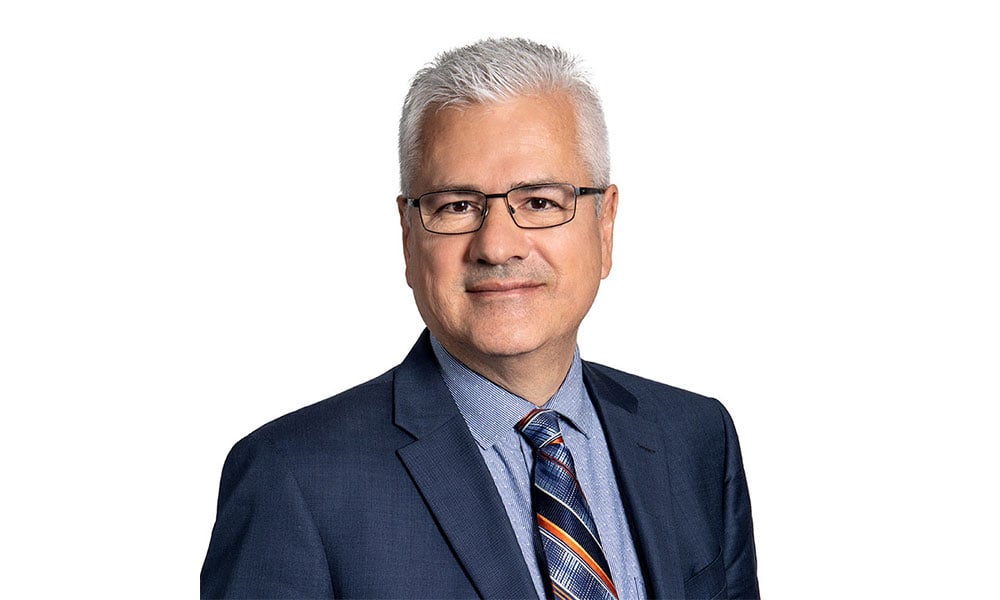Frank Mauro, of Wellington-Altus, shares how the entrepreneurial spirit and time-tested value approach fuelled $10 billion rise

Frank Mauro didn’t start his 36-year career in the financial advice industry by accident — it was something he had always planned on.
“I did my degree in finance, and did another in urban land economics,” he said. Mauro is a Director of Wellington Altus Holdings and Executive Vice President of Wellington-Altus Private Wealth as well as a Senior Financial Advisor. “I graduated in 1984 and straight out of university, I got into this industry. It’s what I’ve always wanted to do.”
Mauro started his career at Prudential Bache Securities; after the firm left Canada, he moved to Dean Witter, which later sold to Midland Walwyn.
“I first met Charlie Spiring at Midland Walwyn and many years later joined him as a Partner at Wellington-West in 2007,” Mauro said. In the next four years they doubled the size of the firm, and then Wellington-West was sold to National Bank in 2011.
Following the sale, Mauro and former Wellington-West colleague Todd Degelman spent about six years with the bank, but soon found that they were not cut out for that environment. They, along with Spiring, came to a collective realization that the entrepreneurial spirit that spurred them to establish Wellington-West was still very much alive.
“We decided to strike out one more time, with the aim of becoming the premier private wealth management firm in the country,” Mauro said. “In 2017, we started Wellington-Altus.”
The three didn’t burn any bridges; they still use National Bank’s independent network as its back office and share some of its research in a relationship that Mauro said was akin to being “first cousins rather than siblings". But as an autonomous firm, Wellington-Altus is able to attract like-minded partners and foster a culture of partnership with the talent that enters their doors.
“We wanted to be able to not just run our client book, but also to build something very special,” he said. “So far it’s been working; we’ve been attracting a lot of corner office advisors whom we regard as the top in the industry.”
In less than three years, Wellington-Altus has managed to achieve a meteoric rise in assets under management, surpassing $10 billion even before reaching its third birthday.
“The next stop is $20 billion,” he said matter-of-factly. “We’ve built the firm’s infrastructure and put people in place to accommodate that. We’re always looking ahead as opposed to trying to play catch-up.”
Even with clear foresight, however, many events just can’t be predicted. The current coronavirus outbreak is a classic case in point; the Russia-Saudi oil price war that’s sent out secondary shockwaves is another. But rather than focus on these types of “air pockets,” as Mauro calls them, his firm stresses long-term wealth management and good-quality value investing, an approach that has been vindicated by their performance numbers since 2008.
“The unnerving part is the emotional side,” he said. “Clients are human, and they’ll get antsy when markets do what they are doing. The majority of the ones we work with have been with us for north of 25 years — we do keep track of how long each household and family’s been with us — and the ones that have been through this before are a lot calmer than our newer relationship, which need a little bit more guidance.”
That guidance involves walking clients beyond investment products, and taking them to areas such as tax planning, insurance, risk management, transition of wealth across generations. Putting that all together in a private wealth, family office approach requires a lot of discussions held over a long period of time.
“It’s all mapped out in a time-tested financial model that we built ourselves, which is based on one I wrote back at the University of British Columbia Business School,”
Mauro said. “We give the clients a good look at where they are today, and then we determine where they want to go. After that, we work our way backwards to figure out what they have to do to hit their goals.”
Often, clients look for the best of both worlds —high returns while staying very conservative. But because of his exploratory model, they can better consider what risks they can tolerate and afford to take on.
“As value managers, we rely on good companies with strong cash flows,” Mauro said. “Saying that, our volatility tends to be lower than the market’s, and our performance numbers tend to be higher over the long term.
“And I think that comes from having great advice that helps clients understand the market, gauge their risk appetite, and walk them away from wrong decisions,” he added. “In times like these, sound advice is paramount.”



